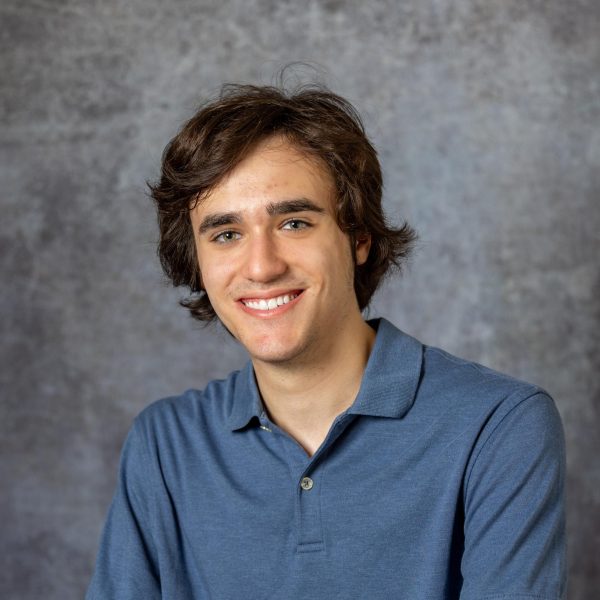On March 10, 2025, the Wisconsin Book Festival hosted the University of Wisconsin Creative Writing Department’s six masters of fine arts candidates for poetry in a reading of their works. The event was introduced by Rodlyn-mae Banting, the book festival’s communications and events associate, and Erika Meitner, professor of English and current director of UW’s MFA in creative writing program.
The event was held in partial honor of the Wisconsin Public Library’s 150-year anniversary. In her introduction, Meitner highlighted the selective nature of UW’s MFA in creative writing program — six candidates for poetry are selected every other year out of thousands of applicants. Each candidate introduced another of their cohort, who would then read from one of their works.
Patrycja Humienik was the first speaker introduced. Her work drew on images of the ocean, maps and territory, as well as excerpts from her upcoming release, “We Contain Landscapes.” Many of Humienik’s works, especially those within the “Devotion” series — a group of poems written to immigrant daughters — concerned the theme of clashing identities.
“[I am] … performing a country,” one of Humienik’s poems read.
Maryhilda Obasiota Ibe’s poems, dedicated to her grandmother, touched on memory, empire and the violent nature contained within human language. Through a variety of speakers, Obasiota Ibe’s writing contained commentary on historical and contemporary genocides and how language can distort or disguise horrific tyranny.
“I became a poet to write what was done to me,” Obasiota Ibe said.
Iqra Khan’s poems observed the distinctions between grief, prayer and desire. Khan’s works also included elements of time, martyrdom, the need for love and comfort and — similar in some ways to Obasiota Ibe’s work, yet completely unique in terms of style — the lifestyle of empire. The last poem Khan read concerned the U.S. specifically.
“The air is so full of unkept promise that your eyes water in grief,” the poem said.
juj e lepe raised questions of memory in their reading excerpts. Using symbols such as coral reefs and family, lepe’s pieces observed the simultaneously fictional and authentic nature of one’s dreams. Tied to the concept of memory in specific was the concept of “dead names,” lingering aspects of an assigned identity.
“Only this deep can we find what we desire,” lepe’s work read.
Jonny Teklit read his works in a rapid, almost stream-of-consciousness style. Similarly reflecting on time and the sea — or rather, a shipwreck — a consistent theme of Teklit’s work centered around alcoholic fathers and the potentially cyclical nature of their addiction. Bolstered by references to Shakespeare and Emily Dickinson, Teklit’s work contained darker concepts such as the continuous nature of second chances as well as hints of optimism.
“It is, thank goodness, impossible to keep joy at bay,” Teklit’s first poem read.
Andrew Chi Keong Yim was the last speaker of the evening, and through a combination of dry humor and pointed observation explored themes of one’s home, family and environment. He observed being away from home as pollution affects both its environment and inhabitants, the protection of a mother despite her fears, and trying to remember one’s father as he was in the water. Chi Keong Yim also observed one’s internal feelings as related to temporality.
“… I haven’t felt time moving inside me,” a poem of Chi Keong Yim’s read.
These MFA candidates will graduate in May, though their dedication to their work will extend far into the future.



